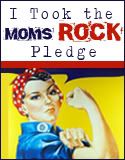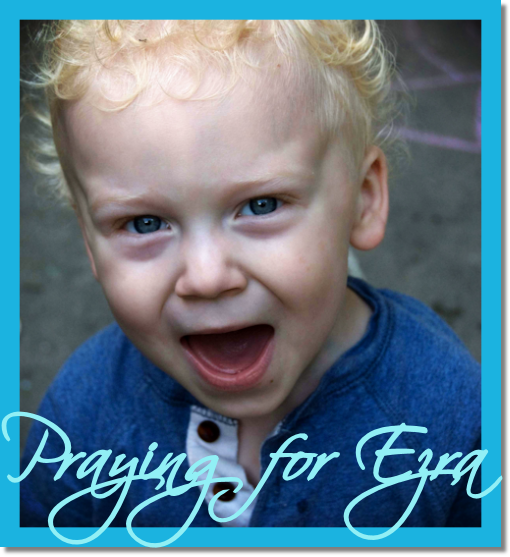Learn what kinds of peer pressure teens face, who’s most vulnerable, and how to help your son or daughter resist.
Remember when your teenager took her first steps as a toddler? You hovered behind her -- back bent, arms spread -- prepared to catch her should she fall. Much as you might like, you can't shadow your adolescent as you did back then, being there to break her fall when she missteps.
But, say experts, there are steps you can take to support your adolescent in the face of teen peer pressure. Follow them and you'll rest easier when your teen heads out of the house on a Friday night.
Teen Peer Pressure: What's Being Pushed?
So, just what high-risk behaviors might your adolescent feel pressured to engage in? Plenty, according to the Centers for Disease Control and Prevention (CDC), which periodically conducts surveys on health-risk behaviors among youth. The latest survey results indicate that teen peer pressure is real. Many adolescents are engaging in behaviors that place their health at risk -- including cigarette smoking, alcohol consumption, illegal drug use and sexual activity. And in all likelihood, their peers are pushing them to try these behaviors.Here are some of the survey's findings.
Smoking. By the time adolescents are just 13, one in five has tried smoking.
Alcohol use. Two-thirds of teens between the ages of 14 and 17 have tried alcohol. Of teen boys who have tried alcohol, 20% did so by the time they were 12. Episodic, or binge drinking, is also fairly common. Of the adolescents aged 12 to 17, one in four said they'd had five or more drinks consecutively within the past month. Almost a quarter of drinkers aged 16 to 21 admitted to driving after drinking.
Drug use. Slightly more than 25% of adolescents aged 14 to 17 have used illegal drugs. One-third of young adult marijuana users aged 18 to 21 started using the drug by the time they turned 14.
Sex. About one in every three kids aged 14 to 15 has had sexual intercourse. Of sexually active teens, almost 30% used no birth control during their last sexual encounter.
Well-documented risky behaviors aren't the only ones teens may feel pressure to try. Health professionals who work with adolescents report other equally troubling behaviors that may not be as common, but are, nonetheless, on the rise. And they point to teen peer pressure as a culprit.
Consider teens' ardent attempts to emulate unrealistic body ideals. "There's a lot of peer pressure to have your body look a very specific way," says Lauren Solotar, PhD, chief psychologist at May Institute in Massachusetts. While the desire to look "fit and thin" is more pronounced among girls, she notes that many boys as young as middle-school age are on the quest for "six-pack" abs. "It's scary, all the push and the pressure," Solotar says.
Intentional self-injury, in some instances provoked by teen peer pressure, is also on the rise. "It's a method of coping with difficult emotions," says Alec L. Miller, PsyD, chief of Child and Adolescent Psychology at Montefiore Medical Center/Albert Einstein College of Medicine in New York. "There seem to be some peers who are engaging in this behavior [slashing their arms], and persuading others to try it." For example, a survey conducted at Lincoln-Sudbury Regional High School in Massachusetts during the 2004-05 school year, based on the CDC's Youth Risk Behavior Survey, revealed that 20% of high school students had intentionally hurt themselves within the past year.
Identifying Vulnerable Teens
When it comes to determining who will succumb easily to teen peer pressure, there's no single profile.Some experts say those who are socially adrift are the most likely candidates. "Teens who are prone to social isolation, and have less of a cohesive sense of self, will do things to feel connected," Miller says.
But others say adolescents who seem like the least likely suspects are actually the most susceptible to teen peer pressure. "Popular kids tend to be the most vulnerable. They pay attention to what their peers value. And at 14 or 15, when their peers value experimenting with alcohol, they're going to be right there," says Joseph P. Allen, PhD, a professor of psychology at the University of Virginia.Why Teens Fall Prey to Peer Pressure
Kids' personal traits aside, many experts agree that simply being of middle-school age is one of the leading causes of peer pressure. "Developmentally, these kids really want to conform," Miller says.Headstrong children who have known few parental limits in their lives are increasingly vulnerable to peer pressure during the middle-school years. "I see young kids who are strong and willful who have gotten away with a lot," says Michelle M. Forcier, MD, head of adolescent medicine at Children's Memorial Hospital in Chicago. "Then parents suddenly panic because the risk-taking behavior is now about more serious things."
How society is set up also makes adolescents conducive to teen peer pressure, some experts say. "If you go back 40 or 50 years ago, adolescents were much more likely to be integrated with adults, to be more a part of adult society," Allen says. That has changed, he notes, and there's now a much stronger emphasis for teens to socialize with peers. "It's an independent youth culture, where values don't come from parents. There's no real connection to adult values," Allen concludes.
Making Your Child Resilient to Teen Peer Pressure
In spite of adolescents' vulnerability and the strong influence of peers, parents can exert a positive influence on their adolescents' decision-making processes, offering them ways to combat the effects of peer pressure. Experts explain how.- Keep communication lines open
Talk to your kids -- and don't wait until they're teens. Healthcare professionals, counselors, and educators agree unanimously that open communication between parents and their children helps youth better manage teen peer pressure. "It's not too early to have an honest conversation about drugs, sex and other pressures when your child is in fifth grade," Miller says.
Dialogue that starts early pays off in the long run. "The kids who weather the decision-making process are those who can talk to their parents, no matter what the issue, and who know that even if their parents don't approve of it, they will listen and help them make a decision that makes sense to them," Forcier says.
Research supports this theory. Teens who report learning a lot about the risks of drugs from their parents are up to 50% less likely to use drugs than those who say they haven't learned a lot about drugs from their parents. That's according to results of an annual, nationwide survey of teens in grades 6 through 12, conducted by Partnership for a Drug-Free America and reported by Tom Hedrick, senior communications officer and founding member of the association.
- Practice peer pressure scenarios
Teen peer pressure may come as a surprise to your child. Out of the blue, he may be offered a cigarette or a swig of alcohol, and he may have no idea how to respond. You can help prepare him for these scenarios. "Find a calm period, prior to or during early adolescence, and role play," Solotar suggests. "It's much easier to manage a situation if you've already thought it out."
- Listen to your teen's perspective
Express your personal opinions, but don't let them shut down communication, advises Forcier. "You want to make clear to your adolescent what you believe in. But if you shut down on certain topics, your kid won't come to you as a trusted adult," Forcier says. She offers the example of the parent who adamantly refuses to discuss birth control with her 15-year-old daughter. "These kids are the ones we often end up seeing for pregnancy tests," Forcier says.
- Keep inviting your kids into your life
"There is a natural break [between teens and their parents], and it should happen. But I tell parents to keep inviting kids to do things. Kids want their parents to maintain the relationship," Allen says. He warns that it may take some creativity and effort on the part of the parent. "You might have to find new ways to relate to your kid," he says. He suggests trying to find mutual, life-long interests to share with your adolescent, like playing tennis or cooking together.
- Think beyond punitive responses
A parent's initial reaction to an adolescent who comes home inebriated may be to punish. But, ultimately, that's not a solution to the real problem. "A punitive response doesn't get at what you need to change the behavior," Forcier says. "If a teen is 14 and she's drinking, there's probably a good reason for it. If you address it, maybe she won't need the alcohol."




























0 comments:
Post a Comment